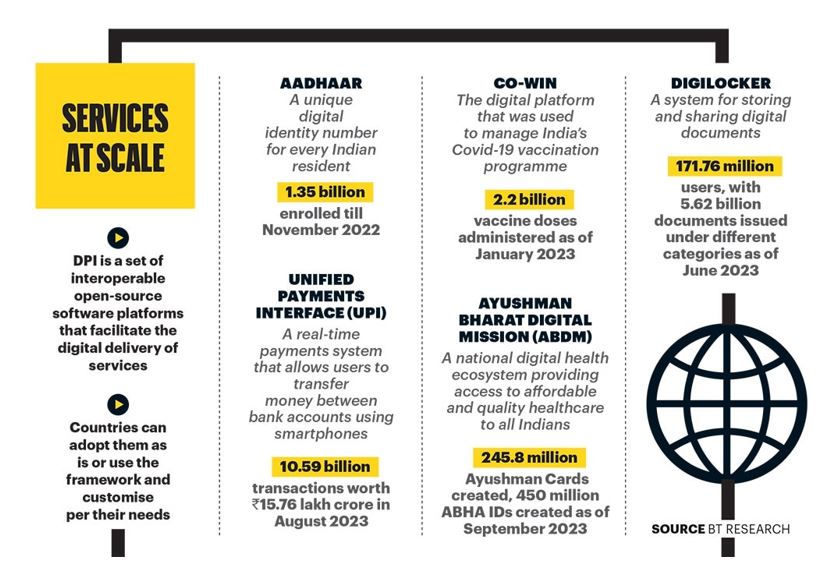

23th February 2024 (8 Topics)
Context
Digital Public Infrastructures (DPIs) are likely to propel India towards a $1 trillion digital economy by 2030, helping it to become a $8 trillion economy, as per a recent report.
What is digital public infrastructure (DPI)??
- DPI is a digital network that enables countries to safely and efficiently deliver economic opportunities and social services to all residents.
- DPI can be compared to roads, which form a physical network that connects people and provides access to a huge range of goods and services.??
- A strong DPI has three foundational systems—
- Identity (like Aadhaar)
- Payments (like UPI)
- Data exchange (account aggregators and DigiLocker)
India's Unique Approach to DPIs
India's approach to DPIs is characterized by several key principles:
- Public Interest: DPIs are developed and implemented with the public interest at the core.
- Openness and Interoperability: DPIs are based on open standards and interoperability platforms, enabling seamless integration with various services.
- Data Privacy and Security: Data protection and privacy are paramount considerations in the design and implementation of DPIs.
- Innovation and Collaboration: India encourages innovation and collaboration between the public and private sectors to develop and enhance DPIs.
Bouquet of services
- Unified Payments Interface (UPI)
- JAM (Jan Dhan Yojana, Aadhaar and Mobile number) trinity
- Covid-19 vaccination platform Co-WIN and the National Health Stack. Digital Infrastructure for Knowledge Sharing (DIKSHA)
- National Digital Education Architecture (NDEAR)
- Digital products: Digital Locker, electronic KYC (eKYC), and on-demand digital signature (e-Sign), FASTag
What are the global implications?
India's DPI journey has significant implications for the global development landscape:
- Alternative Model: India's DPIs offer an alternative model to the traditional "big tech" approach, emphasizing public ownership and control of critical infrastructure.
- Global Adoption: India's DPI frameworks and tools, such as MOSIP, can be adapted and implemented by other countries to suit their specific needs.
- Accelerated Development: DPIs can accelerate development by enabling efficient and inclusive delivery of public services.
More Articles



